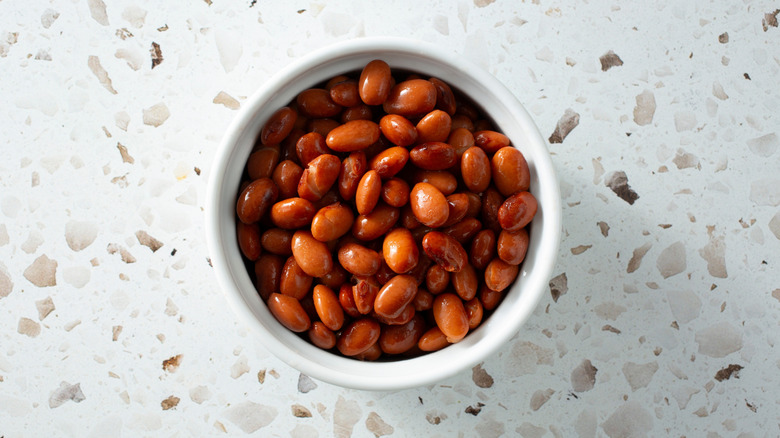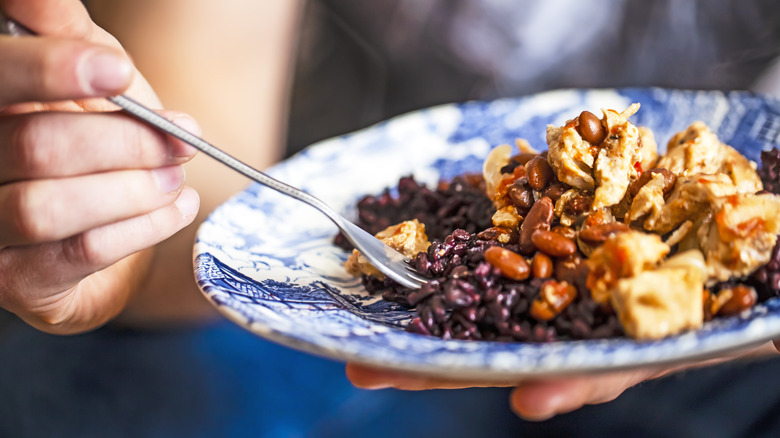
Beans might not be at the top of your favorite foods list, but they are the unsung heroes in many tasty dishes. Chili without beans wouldn’t have the same hearty feel, and rice seems incomplete without a warm serving of beans on the side. Apart from taste and texture, beans are rich in protein and fiber, which keep you full and stabilize your blood sugar. This combination significantly aids in preventing chronic health conditions like obesity and type 2 diabetes.
Pinto beans, specifically, are a staple in meals like refried beans, tortilla pies, and chalupas. They offer more than just flavor. A cup of cooked pinto beans provides an impressive 15 grams of protein and 15 grams of fiber, making them quite filling. They’re also excellent sources of iron, selenium, and B vitamins. Notably, pinto beans offer nearly 75% of your daily folate requirement. Additionally, they’re low in sodium (provided you rinse them if using canned beans) and high in potassium and magnesium, making them ideal for those monitoring their blood pressure.
The nutrients in pinto beans that reduce blood pressure

The U.S. Centers for Disease Control and Prevention notes that people often consume excessive sodium and insufficient potassium. This imbalance may partly explain why nearly half of the U.S. population experiences high blood pressure. Ensuring adequate potassium intake while limiting sodium is an effective way to manage blood pressure. Potassium helps balance sodium levels and reduces blood vessel stress. The American Heart Association suggests consuming at least 3,500 milligrams of potassium daily to prevent or manage high blood pressure. Pinto beans contain 745 milligrams of potassium.
Don’t overlook the magnesium in pinto beans. With 86 milligrams of magnesium per cup, they provide about 20% of your daily magnesium needs. Magnesium regulates blood pressure by controlling sodium and calcium levels in your cells and relaxing blood vessels. According to a 2011 review in The Journal of Clinical Hypertension, magnesium is more effective in managing blood pressure when combined with a low-sodium and high-potassium diet. If you’re on blood pressure medication, magnesium enhances its effectiveness. Consuming just half a cup of pinto beans daily might lower your hypertension risk by 43%, as indicated by a 2022 study in Nutrients.
Pinto beans are good for your gut and cholesterol

Including a half cup of pinto beans in your daily diet can help regulate blood pressure and improve cholesterol levels, further reducing heart disease risk (try adding baking soda to reduce gassiness). In a 2007 study published in the Journal of the American College of Nutrition, participants consumed ½ cup of pinto beans, black-eyed peas, or carrots daily for 8 weeks. Blood tests revealed that those who ate pinto beans experienced an average total cholesterol reduction of 19 points and a 14-point decrease in LDL (“bad”) cholesterol.
Pinto beans benefit your gut due to their resistant starch. A 2007 study in The Journal of Nutrition had participants consume either pinto beans or an isocaloric chicken soup daily for 12 weeks. Those who ate pinto beans produced more propionate, a beneficial short-chain fatty acid generated when gut bacteria ferment bean fiber. Propionate helps regulate appetite, manage blood sugar, and reduce inflammation. Bean consumers also had lower levels of potentially harmful compounds like isovaleric and isobutyric acids.
“`




